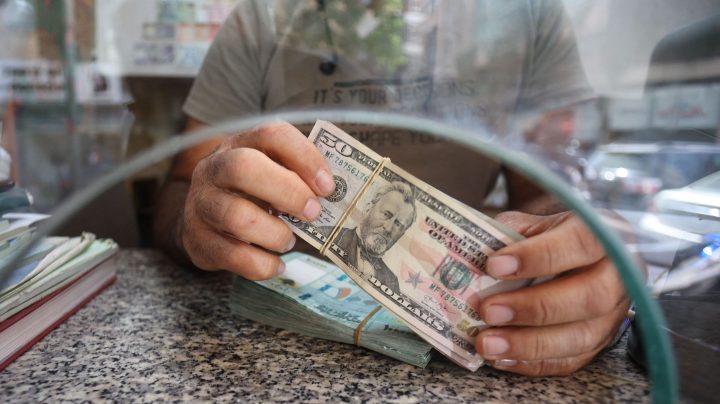
Strong U.S. dollar presents problems for much of the world
Strong U.S. dollar presents problems for much of the world

The currencies of nearly every major economy have fallen against the dollar, from the British pound to the South Korean won. The dollar has been appreciating this year as the world’s investors move money into the U.S. to keep it safe during geopolitical and economic uncertainty as well as take advantage of rising interest rates here. That has consequences.
New Yorker Ryan Sheffield just spent a long weekend in the U.K.
“The pound had fallen so far … it was very affordable for just a four-day weekend,” he said.
A strong dollar is great for American importers, too — foreign goods are cheaper. It is not great for exporters.
“We make hands-on learning materials, and we sell in over 100 countries,” said Rick Woldenberg, CEO of Learning Resources. “A stronger dollar makes our products much more expensive. Where we have the biggest problem is in the U.K. The buying power of the pound has just collapsed.”
Now multiply that across not just exporters, but all the global companies based in the U.S..
“If you look at the S&P 500 [stock index], something like 40% of the revenues derived by the market in general come from outside of the U.S.,” said Alan Robinson, an adviser at RBC Wealth Management.
Outside the U.S., these companies earn money in currencies that are worth much less vis-a-vis the dollar than a year ago. And it’s outside the U.S. that a stronger dollar is taking the most dramatic toll.
“For many countries around the world, there is a fair amount of debt that they hold that is denominated in U.S. dollars,” said Eswar Prasad, professor of economics at Cornell.
That debt has become much more expensive, posing a serious problem in the world’s most fragile economies.
“Our foreign debt is hundred billon USDs,” said Ajithwasantha Liyanage.
Liyanage lives in southern Sri Lanka, where he works for a nonprofit. Sri Lanka’s economy was already a shambles, partly because of the pandemic. The dollar’s effect on debt repayment and imports has worsened the situation.
Sri Lanka is so starved of reserves to pay for ever more costly imports that it just up and banned the import of hundreds of goods, including cars, refrigerators and dairy products.
Inflation is upward of 70%.
“Before the crisis, the price of an egg is 15 rupees,” or about 4 cents, Liyanage said. “Now it’s 60 rupees. An egg!”
The dollar has gained value this year, and that value commands a heavy price around the world.
There’s a lot happening in the world. Through it all, Marketplace is here for you.
You rely on Marketplace to break down the world’s events and tell you how it affects you in a fact-based, approachable way. We rely on your financial support to keep making that possible.
Your donation today powers the independent journalism that you rely on. For just $5/month, you can help sustain Marketplace so we can keep reporting on the things that matter to you.











